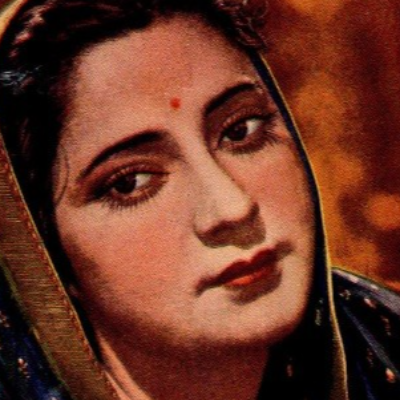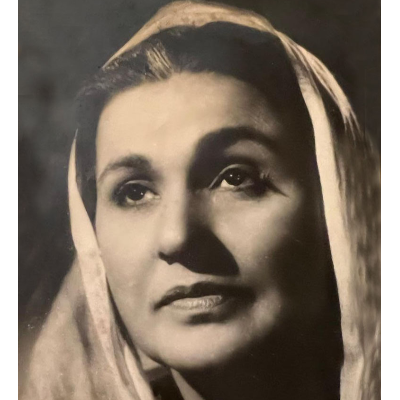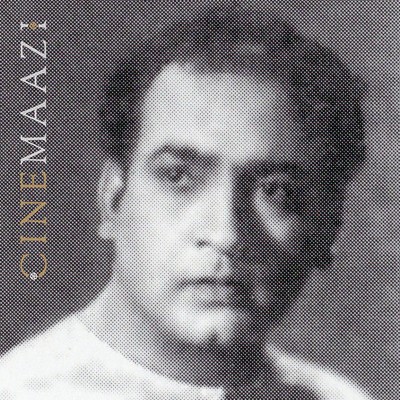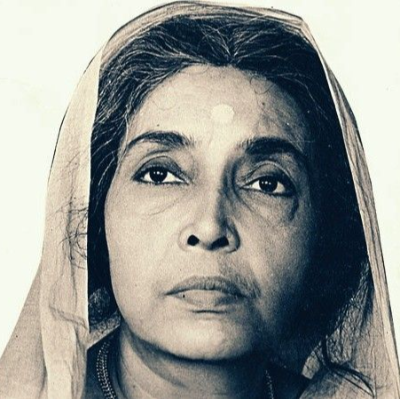Sandhya Mukherjee

Subscribe to read full article
This section is for paid subscribers only. Our subscription is only $37/- for one full year.
You get unlimited access to all paid section and features on the website with this subscription.
Not ready for a full subscription?
You can access this article for $2 , and have it saved to your account for one year.
- Born: 4 October 1931 (Calcutta, Bengal Presidency, British India)
- Died: 15 February 2022 (Kolkata, West Bengal, India)
- Primary Cinema: Bengali
- Parents: Hemaprabha Devi and Narendranath Mukhopadhyay
- Spouse: Shyamal Gupta
- Children: Soumi Sengupta (daughter)
To the people of West Bengal and Bengalis across the globe, Sandhya Mukherjee/ Mukhopadhyay was Gitashree (eminent singer) and was considered an empress of Bengali playback singing. The legendary singer was a trained classical singer who rendered different forms of singing with equal ease, from playback for films to folk songs, and Rabindra Sangeet to bhajans. She is credited with taking modern Bengali songs to new heights, be it in the realm of playback singing for films or songs released during Durga Puja, which emerged as a new genre. What’s more, she is acknowledged for being able to maintain her popularity as a classical vocalist even after acquiring the gloss and the glow of playback singing. She is known for her work in films such as Jighansha (1951), Sabar Uparey (1955), Stay Alert (1956) and Fuleswari (1974), winning the Silver Lotus National award for best playback singer (female) for Nishi Padma (1970) for the song Ore sakol sona molin holo; she won another National award for Jai Jayanti (1970). Giving voice to screen icons like Madhubala and Suchitra Sen, she is known for her duets with Hemanta Mukhopadhyay. Some of her popular songs include Ei path jyodi na sesh hoe from the Uttam Kumar-Suchitra Sen starrer Saptapadi (1961) and Bangabandhu phire elo tomar from Bangabandhu Mujibur Rahman. She received the Banga Bibhushan, the highest civilian honour of the Indian state of West Bengal, in 2011.
Born on 4 October 1931 in Calcutta, the youngest of six children, she took her first music lessons from her father Narendranath Mukhopadhyay and mother Hemaprabha Devi. She took her initial musical training under Santosh Kumar Basu, A T Kanan, and Chinmoy Lahiri. She trained in Indian classical music under Ustad Bade Ghulam Ali Khan followed by his son Ustad Munavvar Ali Khan, and was later associated with legends like Begum Akhtar. She was just 12 when she performed at her first classical musical conference. In 1945, her first record released; three years later, her first album of Durga Puja songs released in 1948. With offers for playback singing in Bengali films soon starting to come in, she stepped into playback singing with the film Samapika (1948), and Bimal Roy’s Anjangarh (1948). She was also an artiste with All India Radio. In 1952, she rendered playback for Rattan Chattopadhyay’s Bengali film Abu Hossain. She rendered playback for more than 15 Hindi films; however, due to personal reasons, she decided to return to and settle in her home city of Calcutta in 1952.
Over the course of her career spanning more than seven decades, she sang over 280 songs. Among the stalwart music directors she worked with are Kalipada Sen, Jnanprakash Ghosh, Manabendra Mukhopadhyay, Pankaj Kumar Mullick, Nachiketa Ghosh, Rabin Chattopadhyay, Salil Chowdhury, Raichand Boral, Anil Biswas, Anupam Ghatak, Hemanta Mukhopadhyay and Ustad Ali Akbar Khan.
Some of her immortal songs include Gaane mor indradhanu, E shudhu gaaner din, Shankho bajiye maa ke ghore enechhi, Amader chhuti chhuti, Ei path jodi na, E gane projapoti, Ki mishti dekho mishti, Ujwal ek jhnak payra, and Tumhi nahoy rohite kachhe.
Most of her famous duets for Bengali films were with Hemanta Mukhopadhyay. They sang more than 90 films together. With Lata Mangeshkar, she sang the classic duet Bol papihe bol for the film Tarana in 1951. Her voice would become synonymous with songs picturised on Bengali screen luminary Suchitra Sen. She was also known for her non-film albums and rendition of Tagore songs.
Post-Independence, she was invited as a guest by the Bangladesh government for its first Bhasha Diwas celebration. In January 1972, when Sheikh Mujibur Rahman returned from prison to the newly independent country, Sandhya Mukherjee joined Bangladesh in the celebrations, rendering the song Bangabandhu phire elo tomar, swopner swadhin Banglay (Bangabandhu has returned to his dream, an independent nation of Bengal), her voice enthralling generations.
Her autobiography Ogo Mor Gitimoy was published in 2001.
In 2022, she declined the Padma Shri award by the Union government, an honour which, according to her family members, she considered “too little too late”. Speaking about it, her daughter Soumi Sengupta said, “There is no politics in it… She felt insulted, that’s all.”
She married noted Bengali poet and lyricist Shyamal Gupta in 1966. Gupta went on to write the lyrics for many of her songs.
Sandhya Mukhopadhyay passed away in Kolkata on 15 February 2022 after a brief illness. She was 90. Her final rites were performed with full state honours. On her passing, West Bengal chief minister Mamata Banerjee said, “To me, Sandhya Mukhopadhyay was Bharat Ratna. With her death we have lost the brightest star in the sky of Bengali music.”
References
https://www.thehindu.com/entertainment/music/legendary-bengali-singer-sandhya-mukhopadhyay-passes-away-at-90/article65053669.ece
https://www.imdb.com/name/nm0611474/
https://timesofindia.indiatimes.com/city/kolkata/geetashree-sandhyas-journey-of-songs-comes-to-an-end-at-90/articleshow/89602528.cms
https://starsunfolded.com/sandhya-mukherjee/
Image credit: https://www.youtube.com/watch?v=fvcUjOeLlYA












.jpg)



